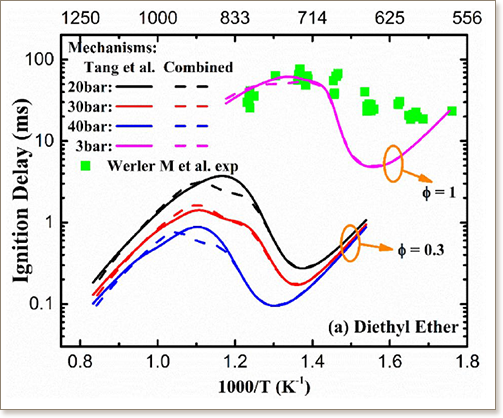

A computational study of lean limit extension of alcohol HCCI engines
Q. Zhou, M.J.M. Ali, B. Mohan, X.C. Lu, H.G. Im
SAE Technical Paper, 2018-01-1679, (2018)

The purpose of present numerical study was to extend the operating range of alcohol (methanol and ethanol) fueled Homogeneous Charge Compression Ignition (HCCI) engine under low load conditions. Ignition of pure methanol and ethanol under HCCI mode of operation requires high intake temperatures and misfires at low loads are common in HCCI engines. Three methods have been adapted to optimize the use of methanol and ethanol for HCCI operation without increasing the intake temperature. First, blending methanol and ethanol with ignition improver, namely di-methyl ether (DME) and di-ethyl ether (DEE), was used to increase the cetane number and ignitability of premixed charge. Second, based on the blended fuels, the spark assistance was used to reduce required intake temperature for auto-ignition. Third, DME and DEE were directly injected to methanol and ethanol operated HCCI engine, in the form of Reactivity Controlled Compression Ignition (RCCI) combustion. Negligible improvement in reducing intake temperature was observed in spark-assisted HCCI combustion due to the slow flame propagation speed under the lean premixed condition with blended fuels. In all three methods, it was found that RCCI combustion was more effective at reducing the required intake temperature compared to HCCI and spark assisted combustion, in spite of the fact that they are operated at same lambda (3.3) operating conditions.